- Akash Token is a utility token powering the world’s first decentralized cloud for DeFi and high growth organizations.
In today’s overview, we will take a close look at what is the Akash Network , what is its structure , its goals and why you might be interested.
Akash network comes as a revolutionary marketplace for cloud computing resources, which is designed to reduce waste and thus achieve lower costs for consumers but also higher revenues for providers.
AN is well aware that the cloud infrastructure is growing at an enormous rate and is currently a $ 32.4 billion industry, and is expected to reach $ 210 billion by 2022. It is also assumed that next year 94% of all internet applications and computer instances will be processed through cloud service providers, and there is a room for innovative companies such as Akash.
Akash aims to create efficiencies in the cloud hosting market by repurposing compute resources that go to waste in the current market.
How does the company want to achieve this?
What probably fascinated me the most is the fact that Akash is the first and only Supercloud for serverless computing. It is this feature that allows anyone in the world who owns a computer to become a cloud provider by simply offering their unused computing cycles in a safe and frictionless marketplace.
What is the Akash Token (AKT)?
AKT is the native token of the Akash Network, used as a staking mechanism to secure the network and normalize compute prices for the marketplace auction.
- The amount of AKTs staked towards a validator defines the frequency by which the validator may propose a new block and its weight in votes to commit a block. In return for bonding (staking) to a validator, an AKT holder becomes eligible for block rewards (paid in AKT) as well as a percentage of transaction fees and service fees (paid in any of the whitelisted tokens).
AKT Distribution
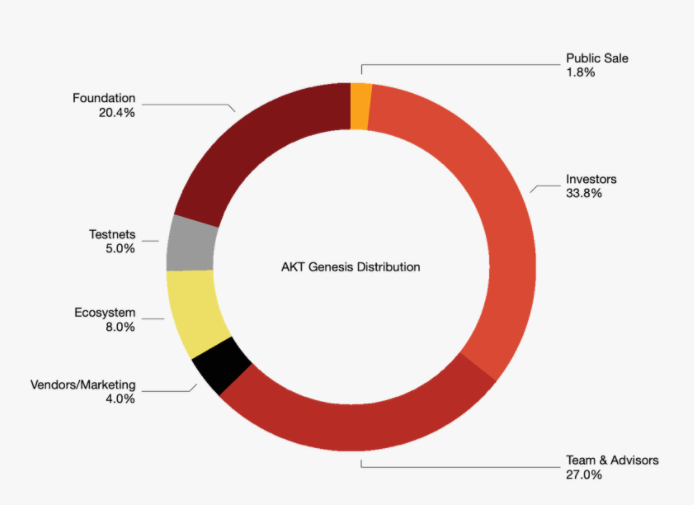
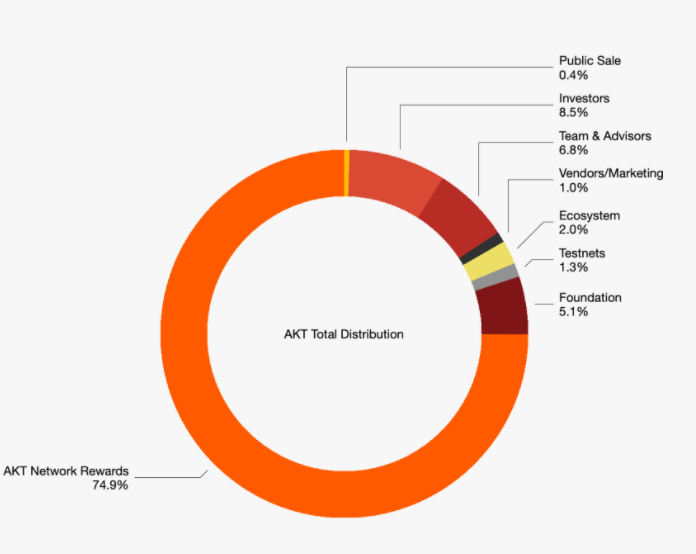
Validators vs Delegators
As for validators, they secure the network by verifying and submitting transactions, designing, verifying, and thus finalizing blocks. Delegators are ACP holders and use their tokens to secure the chain. Delegators also have the option to earn a portion of the transaction fee as block rewards.
Providers vs Tenants
Providers offer calculation cycles for the Akash network and earn fees for their contributions, but are required to maintain a certain share in the ACP as collateral. Tenants can easily rent calculation cycles at a market price.
Network
The Akash network can simply be explained as a decentralized cloud computing marketplace. This marketplace connects, on the one hand, those who need computing resources with those who own and rent this computing capacity. Tenants are happy because it is cost-effective and flexible for them, and providers use Akash because it allows them to generate profits from unused capacity.
But let’s look more specifically at how it works.
The computing unit, which can be either CPU / Memory / Disk, is leased as a container on the Akash server.
Container: A container is a standard unit of software that packages up the code and all its dependencies, so the application runs quickly and reliably from one computing environment to another.
Simply put, it is a software package that contains everything you need to run an application and allows anyone who owns a PC to allocate resources to the containers using their machine.
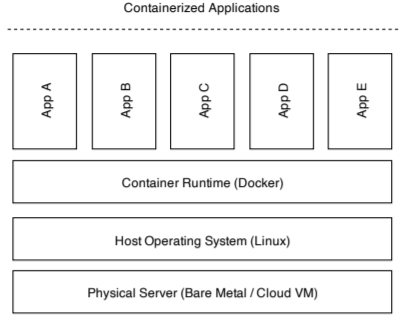
Akash is POS
Akash employs a Blockchain secured by a Proof-of-Stake consensus model as a Sybil resistance mechanism for determining participation in its consensus protocol and implements the Tendermint algorithm for Byzantine fault-tolerant consensus.
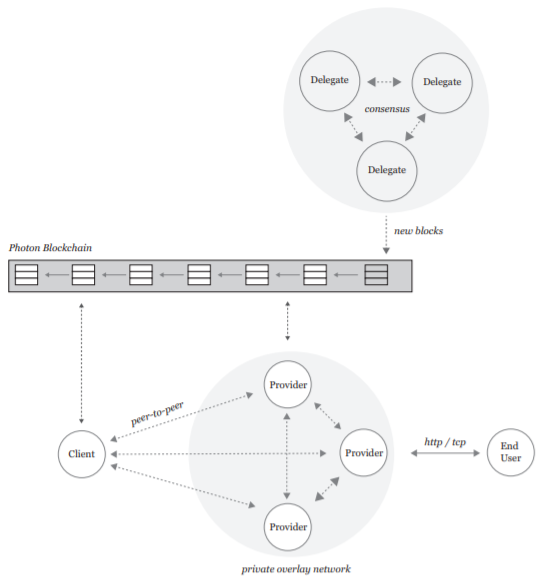
Let’s not make this article too technical, I was also interested in their own supercomputer called The Akash Supermini. According to available information, the Supermini is the smallest and most powerful portable supercomputer in the world through which you can become a node for the Akash Network, and earn your favorite crypto. By the way, I think creating a Supermini was a really great move that can bring the company more attention.
There is still a lot to be written about Akash, but I think i have summarized the most important things here, and if you are interested, don’t forget to visit the website as well.
Conclusion
Akash Network is pursuing its goal and no one will stop it. After studying all available information, this is a really beneficial project that has the potential to break through and retain its regular clients.
- Akash mainnet is scheduled in Q4 2020
- The primary listing and auction of the Akash Token (AKT) on BitMax will begin on October 15 / 16


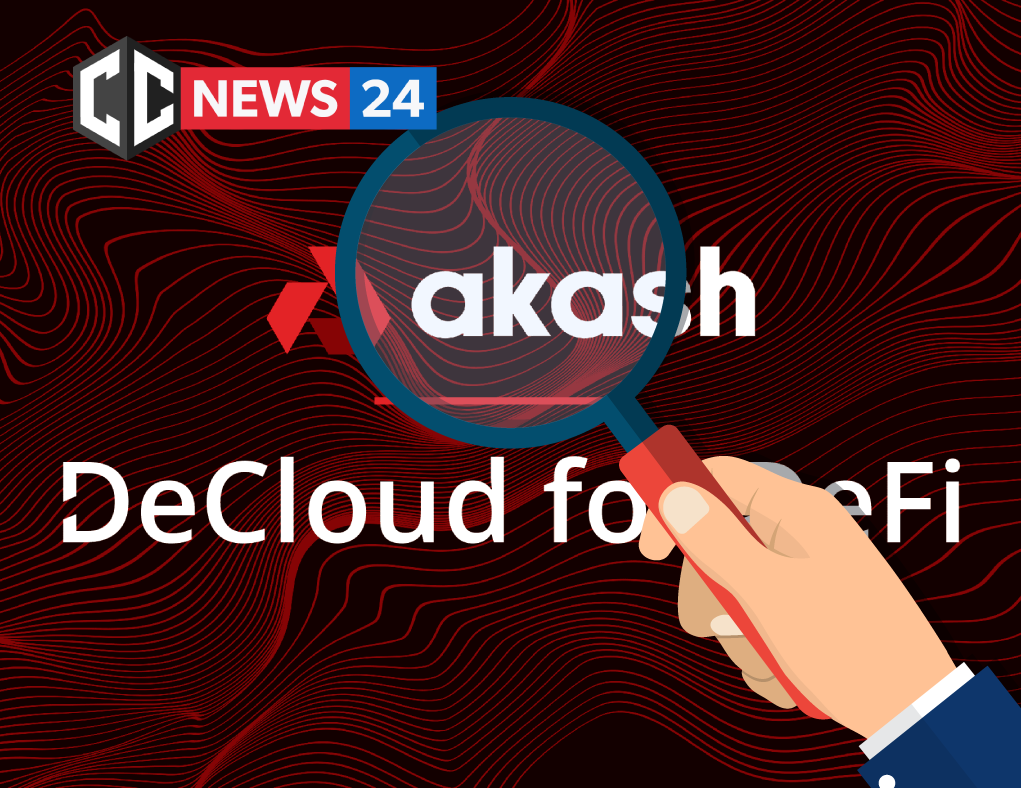
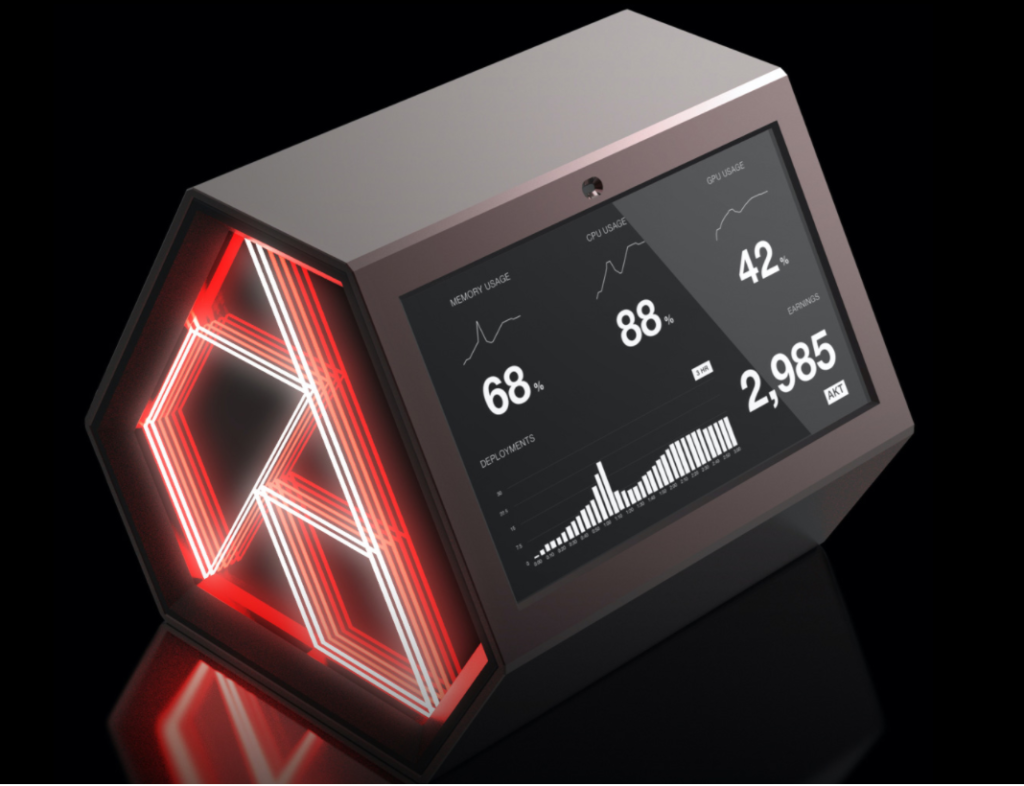
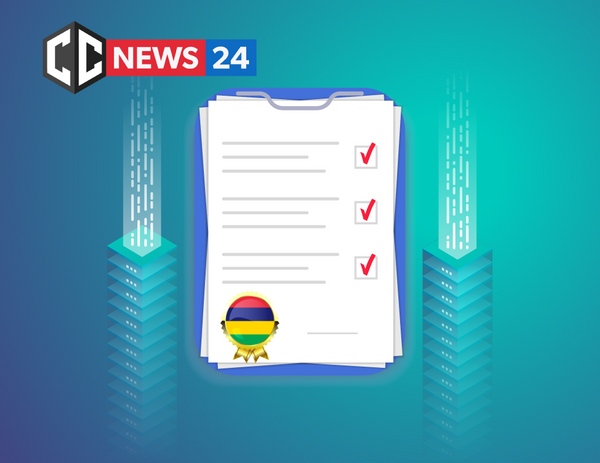
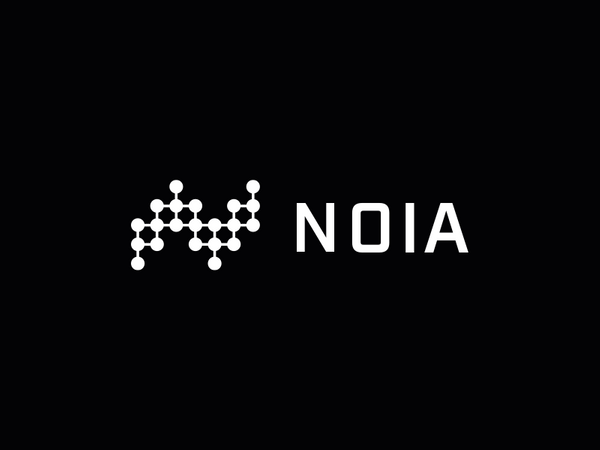

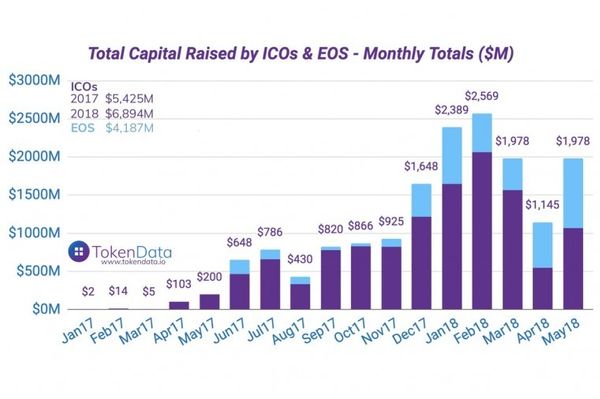
![Technology VPE bank opens Bitcoin [BTC] and crypto exchange for whales](/content/images/size/w600/2018/04/19f3fc341339c0f92d1d371b4c1c8c6b_1525098027-b.jpg)
